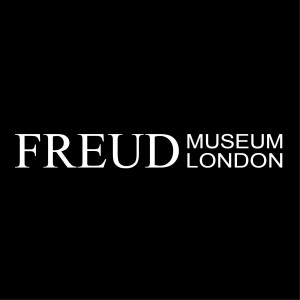
Mark Berry: Interpreting Wagner’s Dreams: Staging Parsifal in the Twenty-First Century
Parsifal, like all of Wagner’s dramas, has much to tell us at the intersection of authorial intention and latent content. What is revealed and what is repressed? Dreams were certainly of great importance to Wagner, perhaps most famously in his claim that the Prelude to Das Rheingold had come to him in ‘a kind of somnambulistic state … the feeling of being immersed in rapidly flowing water,’ and indeed in the dramatic material of a number of his works. Die Meistersinger von Nürnberg is explicitly concerned with the formation of an artwork initially revealed in a dream world. That offers an interesting way to consider stagings of his works too, and their claims to fidelity or otherwise at a textual or allegedly ‘deeper’ level. I shall consider the work ‘itself’ and its adamant claim to stand apart from the operatic repertoire as a Bühnenweihfestspiel (‘stage-festival-consecration-play’) to be confined to his artistic temple at Bayreuth. I shall also consider two particular productions: Stefan Herheim (Bayreuth, 2008-12) and Dmitri Tcherniakov (Berlin, 2015-). How do directors and performers navigate the historical, social, cultural, and psychological distances and conflicts between Wagner’s intentions, his ability and inability to fulfil and perhaps even to transcend those intentions, and the needs of contemporary theatres and audiences? What is gained and what is lost? What, again, is revealed and what is repressed?
Dr Mark Berry is Senior Lecturer in Music at Royal Holloway, University of London. He read History at the University of Cambridge, where he remained for postgraduate and postdoctoral study. He is the author of Treacherous Bonds and Laughing Fire: Politics and Religion in Wagner’s Ring (Ashgate, 2006) and After Wagner: Histories of Modernist Music Drama from ‘Parsifal’ to Nono (Boydell Press, 2014) and has written widely on musical, intellectual, and cultural history from the later seventeenth century to the present day. He is at present writing a biography of Arnold Schoenberg for Reaktion Books and co-editing the Cambridge Companion to Wagner’s ‘Ring of the Nibelung’. He reviews concert and opera performances regularly, and is the author of the ‘Boulezian’ blog.
In our conference 'Wagner, Freud and the End of Myth' (2013) we argued that by taking the mythic dimension and bringing it into the human realm, Wagner anticipated Freud in his depiction of unconscious processes of the mind. It could be said that Freud and Wagner were dealing with the same stuff - the “fundamental psychosexual issues that affect us all” as Barry Millington put it, and for that reason a fruitful dialogue can exist between their two bodies of work.
The present conference is entirely devoted to Wagner’s final masterpiece, Parsifal, and explores whether this sublime, troubling and contentious work prefigures psychoanalytic insight or resists psychoanalytic interpretation. As a story of compassion and redemption, which nevertheless describes a world of perversion and mental anguish, what can Parsifal tell us about the secret springs of human desire and the conflicts of human nature? And how did Wagner manage to create it?
More Episodes
 2017-03-30
2017-03-30
 2017-03-03
2017-03-03
 2016-08-05
2016-08-05
 2016-07-19
2016-07-19
Create your
podcast in
minutes
- Full-featured podcast site
- Unlimited storage and bandwidth
- Comprehensive podcast stats
- Distribute to Apple Podcasts, Spotify, and more
- Make money with your podcast
It is Free
- Privacy Policy
- Cookie Policy
- Terms of Use
- Consent Preferences
- Copyright © 2015-2024 Podbean.com



